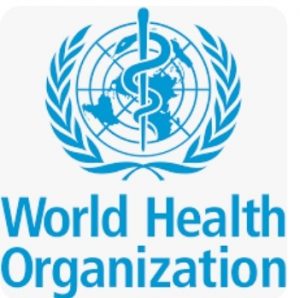Non-communicable diseases kill 41 million people every year – WHO

World Health Organisation (WHO)
The World Health Organisation (WHO) has said 41 million people die from Noncommunicable Diseases (NCDs) globally every year.
The figure, WHO said, is equivalent to 74 per cent of all annual global deaths.
Before the age of 70, the global health organisation noted that 17 million people die from Communicable Diseases (CDs), adding that 77 per cent of all NCD deaths are in low-and middle-income countries.
In a long publication detailing NCDs on Friday, WHO highlighted four groups of diseases that account for over 80 per cent of all premature NCD deaths.
It further noted that with 17.9 million annual deaths, cardiovascular diseases account for most deaths, and that it is followed by cancers with 9.3 million deaths annually.
The publication said while chronic respiratory diseases account for 4.1 million, deaths from diabetes are 2.0 million including those caused by kidney disease as a result of diabetes.
“Detection, screening and treatment of NCDs, as well as palliative care, are key components of the response to NCDs,” it said.
The WHO explained that people of all age groups, regions and countries are affected by NCDs but evidence shows that 17 million NCD deaths occur before the age of 70 years.
It noted that children, adults and the elderly are all vulnerable to the risk factors contributing to NCDs, which it said include unhealthy diets, physical inactivity, exposure to tobacco smoke or the harmful use of alcohol.
“These diseases are driven by forces that include rapid unplanned urbanisation, globalisation of unhealthy lifestyles and population ageing.
“Unhealthy diets and a lack of physical activity may show up in people as raised blood pressure, increased blood glucose, elevated blood lipids and obesity,” WHO said.
It added that these factors are called metabolic risk factors and can lead to cardiovascular disease, which is the leading NCD in terms of premature deaths.
Risk factors
The global body further explained two types of NCDs risk factors: Modifiable behavioural risk factors and Metabolic risk factors.
According to WHO, Modifiable behaviours such as tobacco use, physical inactivity, unhealthy diet and the harmful use of alcohol, all increase the risk of NCDs.
It said tobacco accounts for over 8 million deaths every year including from the effects of exposure to second-hand smoking, while 1.8 million annual deaths have been attributed to excess salt/sodium intake.
Also, more than half of the three million annual deaths attributable to alcohol use are from NCDs, including cancer, while 830,000 deaths annually can be attributed to insufficient physical activity.
Under the Metabolic risk factors, it said raised blood pressure constitutes the leading cause of deaths, followed by raised blood glucose, overweight and obesity.
On its socioeconomic impacts, the WHO said that the “NCDs threaten progress towards the 2030 Agenda for Sustainable Development, which includes a target of reducing the probability of death from any of the four main NCDs between ages 30 and 70 years by one-third by 2030.”
It added that the exorbitant costs of NCDs, including treatment, which is often expensive, combined with the loss of income, force millions of people into poverty annually and stifle development.
Prevention, control
Meanwhile, WHO recommended that an important way to control NCDs is to focus on reducing the risk factors associated with these diseases.
It said: “Low-cost solutions exist for governments and other stakeholders to reduce the common modifiable risk factors. Monitoring the progress and trends of NCDs and their risk is important for guiding policy and priorities.
“To lessen the impact of NCDs on individuals and society, a comprehensive approach is needed requiring all sectors, including health, finance, transport, education, agriculture, planning and others, to collaborate to reduce the risks associated with NCDs, and to promote interventions to prevent and control them.
“Investing in better management of NCDs is critical. Management of NCDs includes detecting, screening and treating these diseases, and providing access to palliative care for people in need.”
It added that countries with inadequate healthcare coverage are unlikely to provide universal access to essential NCD management interventions which are essential for achieving the SDG target on NCDs.
As the 2030 Agenda for Sustainable Development recognises NCDs as a major challenge for sustainable development, WHO says it plays a key leadership role in the global fight.
It said: “As part of the Agenda, heads of state and government committed to developing ambitious national responses, to reduce by one-third premature mortality from NCDs through prevention and treatment (SDG target 3.4).
“WHO plays a key leadership role in the coordination and promotion of the global fight against NCDs and the achievement of the Sustainable Development Goals target 3.4.
“In 2019, the World Health Assembly extended the WHO Global action plan for the prevention and control of NCDs 2013–2020 to 2030 and called for the development of an Implementation Roadmap 2023 to 2030 to accelerate progress on preventing and controlling NCDs.
“The Roadmap supports actions to achieve a set of nine global targets with the greatest impact towards prevention and management of NCDs.”
===================
For More News Join Our WhatsApp Group With This Link Below:
WhatsApp group: https://chat.whatsapp.com/CdPVxGOPHCI5Kd4ALZduZ7